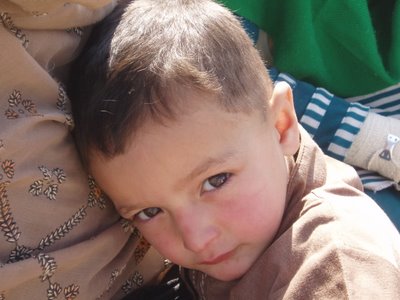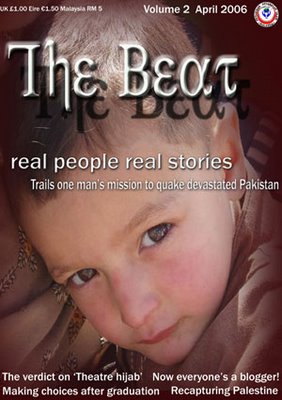
Pic taken from soccernet.espn.go.com originally by Mike Egerton/Empics
Today I witnessed one of the best performance from Manchester United in a few weeks. Immediately I recalled an episode of the poorer Manchester United forms from a few weeks back. It was simply amazing how MU has maintained an unbeaten run for quite a long time (9 matches so far... and I am confident it could simply go to 14 max this season.. and who knows, Premiership title as well...).
Anyhow, it is the subject of 'change' that I would like to convey this time around. Last week I faced a pretty difficult predicament requiring me to make a dramatically-changing decision. Buying a car, for 200 quid. Mint condition. I even got a test-drive (and soon enough after I held the steering wheel that I realized how unfamiliar UK roads are).
Dynamism in life is something that each and every one of us face some time in our life. Be it two years ago when actually deciding to come to UK or not, be it last year when deciding to rent a house or not, or be it a few weeks back when deciding to go on a trip or not. And yes, going on a trip is quite a big decision to make (at least for me it is), considering the monetary impact and most importantly time provision for the trip. For some reason (and I know this happen not to just me), going on a trip is somewhat challenging. I'm sure many people have come to realize that everytime they are on the verge of beginning a trip they felt like having thousands of butterflies in their stomach. Feeling anxious, nervous, the uncertainty of going to a new place could well be daunting to some.
Although this may sound rather elementary and obvious, one might realize that he/she might have subconsciously put aside the fact that making change could be a big thing for some. This 'trivial' element of life is sometimes regarded as, dare I say it, unnecessary.
For instance, our so-called 'da'wah'. Yes, the element of "ta'muruna bil ma'ruf, wa tanhauna anil mungkar". Daeis often forget the fact that making changes is a big thing for his/her mad'u. And easily, the daeis shower their mad'us with criticism. A daei might felt that criticism is a very crucial element in 'improvising people'. Yes, without doubt it is. But then again it is not THE most important element in "promoting improvisation" (not improvising, think about the difference, and the impact of the difference). Suggesting alternatives (for me) by far play a more important role in "promoting improvisation". For instance, securing his/her mad'u an environment that could promote improvisation. Criticism, on the other hand, might have the upperhand compared to the idea of "alternatives" in some situations, but could also be of damaging effects to promoting improvisation, especially in terms of two-way relationship between the daei and the mad'u. Hence, careful choice of words (and equally important, the right gestures) is a very important element in da'wah. This all come to basic nature of some people being hard to adapt or to accept change, even for the better (which could proof to be awkward to some).
My ramblings have gone far enough, I supposed. My point is, change is hard for some and as daeis one of our(?) role should be accepting the fact that change is hard and providing means to ease the change. And believe me, unnecessary use of 'powerful arabic words' doesn't help, at all. In fact, they tend to isolate people. Believe me, been there, felt it. People should be made to feel autarky, not be made to feel as if he/she is a fool or obnoxiously (yet rightfully not) ignorant. Not everyone likes to be a philologist. (On that note I would like to apologize for not readily adapting to the needs of others in the form of obliviously using 'huge' words, if any.)
Done for now...
MANCHESTER UNITED RULES!!! GLORY! GLORY! MANCHESTER UNITED!
End of communication...




 “The temperature would range between -5°C to 3°C,” warned Dr. Faizal, the chief for this South Asian mission. It is the day before we left for Pakistan, briefing day in Malaysian Medical Relief Society (MERCY) headquaters in Ampang Point, Kuala Lumpur. It is also the day to get to know everyone in the team. There are all 6 of us in the team, Dr. Azlina (Orthopedic Surgeon, Hospital University Malaya), Dr. Shahila (O&G specialist, Taiping Hospital), Dr. Amir (surgeon, HUKM), Dr Natasha (General Practitioner, KL),Dr Chan (MO, Sabah), SN Norzaini (HUKM), Mr Gunalan (a sales manager from Petronas as our logistician) and lastly me, Halim Lim Abdullah (an MA from HTAA, Kuantan).
“The temperature would range between -5°C to 3°C,” warned Dr. Faizal, the chief for this South Asian mission. It is the day before we left for Pakistan, briefing day in Malaysian Medical Relief Society (MERCY) headquaters in Ampang Point, Kuala Lumpur. It is also the day to get to know everyone in the team. There are all 6 of us in the team, Dr. Azlina (Orthopedic Surgeon, Hospital University Malaya), Dr. Shahila (O&G specialist, Taiping Hospital), Dr. Amir (surgeon, HUKM), Dr Natasha (General Practitioner, KL),Dr Chan (MO, Sabah), SN Norzaini (HUKM), Mr Gunalan (a sales manager from Petronas as our logistician) and lastly me, Halim Lim Abdullah (an MA from HTAA, Kuantan).
